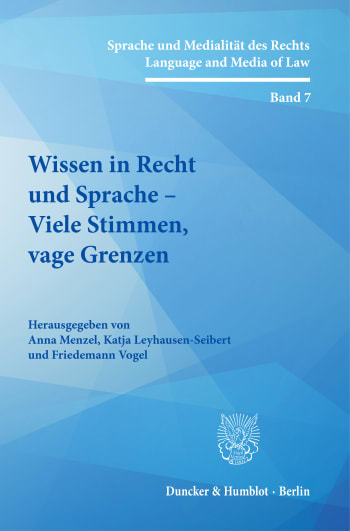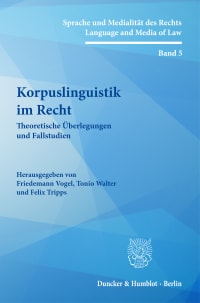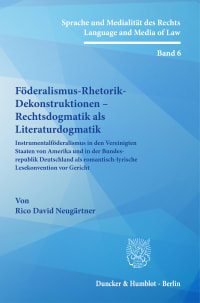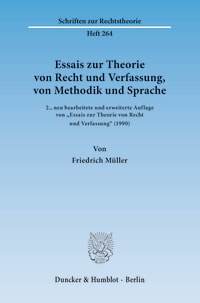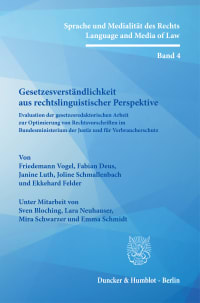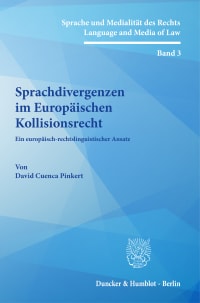Description
»Knowledge in Law and Language – Multiple Voices, Vague Boundaries«: This volume is based on a discussion in the Heidelberg working group »Law and Language« in 2020, when far-reaching health policy measures were legitimised with »the science«. The opening contribution argues philosophically in favour of a practice-oriented and dynamic-processual, yet strict concept of knowledge: knowledge should be historically open to new insights but offer reliable orientation in theory and practice and not be watered down by other types of certainty. Studies from law, linguistics and the arts respond with claims to participation and epistemic justice. They investigate the diversity, performativity and corporeality of knowledge and stress the knowledge of underprivileged groups. Others show how the European enlightened concept of knowledge and science is currently being politically instrumentalised and dissolved. The role of knowledge in front of the court is thematised in the area of human rights and climate issues as well as the topics of AI, child protection, gender, asylum, corona and disaster policy.
Overview
Harald Wohlrapp: Was ist Wissen? Ein (neuer) Vorschlag zur Bestimmung des Wissensbegriffs
Peter Schiffauer: Was können Rechtskundige wissen?
Regina Schidel: Wissensungerechtigkeit. Eine rechtsphilosophische Perspektivierung
Nicole Zilberszac: Legal Objectivity. Towards a material and embodied approach
Katja Leyhausen-Seibert: Zur Sozialtechnologie des Katastrophismus
Thomas-Michael Seibert: Wissen vor Gericht
Izabela Jędrzejowska-Schiffauer: Zum Verhältnis zwischen Wissen und Weltanschauung im Verfassungsrecht. Ein Versuch über das Konzept des Kerns der Menschenrechte
David Cuenca Pinkert: Das Wissen des Gerichtsdolmetschers
Valentin Feneberg: »Vernünftige Verfolger«? Realitätskonstruktion mit Erfahrungssätzen in der deutschen Syrienrechtsprechung
Friedemann Vogel: (Un)Gewissheit im Rechtsdiskurs. Sprachliche Indikatoren für Faktizitätsansprüche in Gerichtsentscheidungen und juristischen Fachaufsätzen aus diskursmetrischer Perspektive
Thomas Coendet: The Legal Knowledge of Artificial Intelligence
Margret Mundorf: Recht vermitteln. Perspektivität in der Vermittlung juristischen Wissens in Fort- und Weiterbildung
